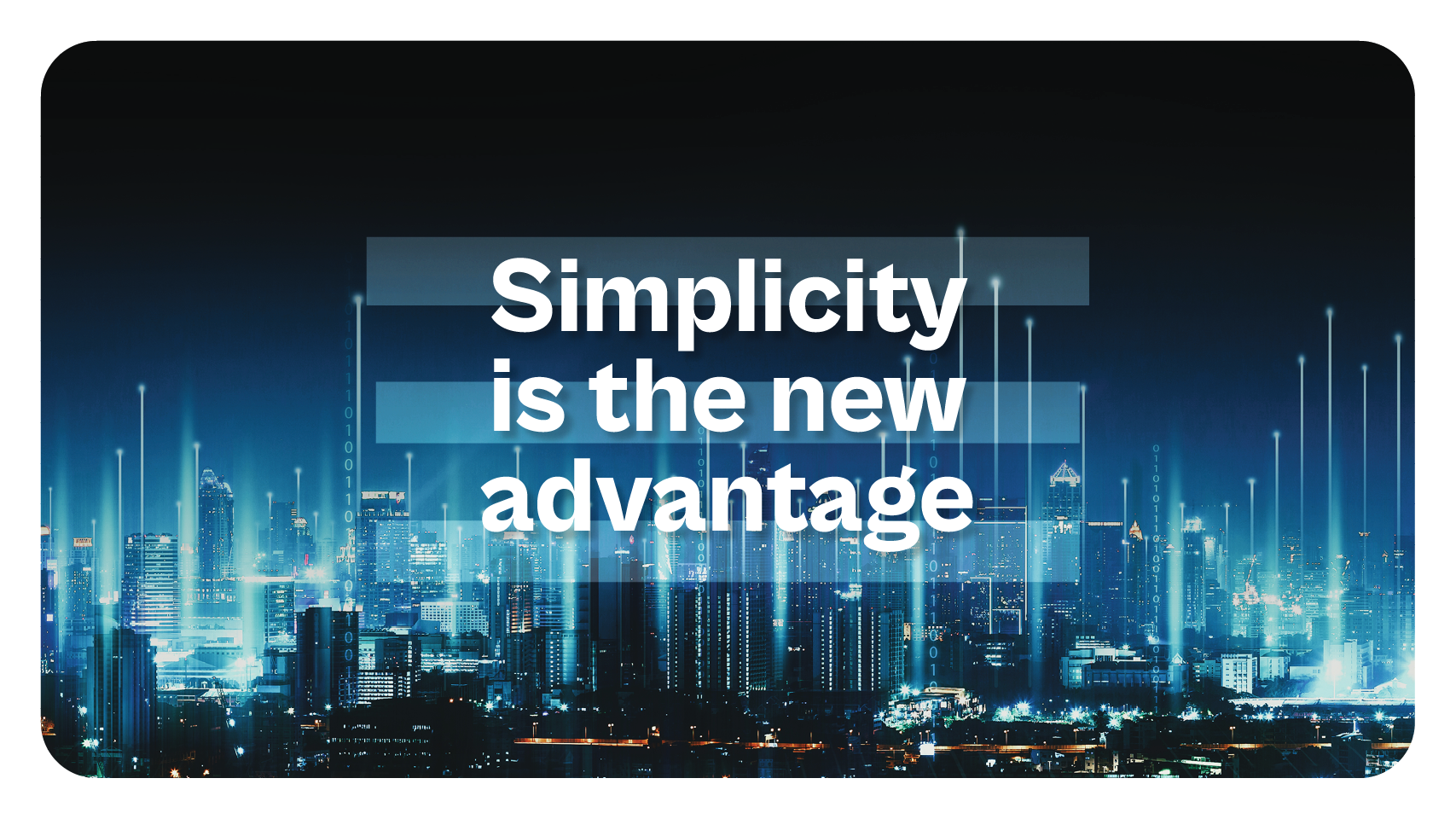
What Is a Banking Platform and Why Is It the Key to SME Growth in 2025?

The platform economy has redefined how industries create and deliver value, and banking is no exception. As small and medium-sized enterprises (SMEs) demand faster, smarter, and more tailored services, US banks must evolve their approach.
Enter platform banking: a digital-first model that enables banks to offer more personalized, agile, and connected services to SME clients.
This article explores what platform banking is, why it matters for US banks targeting SMEs, and how this model improves client experience, retention, and growth.
What Is a Banking Platform?
A banking platform is a digital ecosystem that connects banks, third-party fintech services and providers, and customers through a unified technology infrastructure. Unlike traditional banking, where products are siloed, platform banking creates seamless, personalized experiences through open APIs, cloud technology, and data-driven services.
Key Features of a Modern Banking Platform:
- API connectivity for third-party integrations
- Data analytics and AI to personalize SME offerings
- Modular design that allows scalable service innovation
- Self-service portals for customers
Think of a banking platform as an app store: banks provide the infrastructure, and customers choose the services that best fit their needs.
💡The Missing Piece in Your Digital Banking Strategy? A Vendor Marketplace. Learn More Here.
Why Is Platform Banking Important for US Banks in 2025?
1. The SME Market Is Underserved
Small and medium-sized enterprises (SMEs) make up more than 99% of all US businesses and employ nearly half of the private workforce. Yet many report that their banking needs are not fully met.
A 2024 survey by the Federal Reserve Bank found that over 60% of SMEs were dissatisfied with the personalization and flexibility of their banking services. These businesses increasingly seek seamless, tech-enabled experiences that mirror the convenience of consumer apps they use daily.
2. Digital Transformation Is Now a Competitive Necessity
SMEs are digitally maturing, and their expectations are rising. They want everything from faster loan approvals to personalized financial tools and integrated platforms—and even non-banking services and support (such as advisory) to help them grow their companies.
Traditional banks face growing pressure from digital-native fintech companies that offer intuitive interfaces, quick onboarding, and highly personalized support. Without adopting platform-based innovations, banks risk losing these clients to more agile competitors.
3. Platform Models Unlock Strategic Advantages
Digital banking platforms are enabling banks to:
- Launch services faster through modular, API-driven infrastructures
- Improve cost-efficiency by reducing legacy overhead and automating workflows within existing banking infrastructure
- Adapt to SME needs in real time, offering dynamic product bundling and insights
- Leverage data for personalization, improving upselling and retention

Banks that embrace platform strategies are not only defending market share from other financial institutions, but also positioning themselves to lead in the next era of SME financial services.
How Does Platform Banking Impact SME Clients?
Platform banking is more than a backend upgrade. It reimagines the entire client experience for SMEs by delivering more relevant, responsive, and resourceful banking services. For small and mid-sized businesses, this shift is transformative.
1. Improved Experience & Personalization
Modern banking platforms provide SMEs with custom-fit financial services based on real-time needs and behavior. Instead of being offered generic packages, SME clients receive:
- Tailored lending options aligned with their cash flow patterns
- Intelligent treasury management tools personalized by industry and transaction behavior
- Dynamic dashboards that offer a full view of their financial health and actionable insights
Through AI and predictive analytics, platforms surface the right products at the right time, whether it’s a seasonal credit line or business insurance during a growth phase.
2. New Services at Scale
Banking platforms give SMEs access to advanced capabilities that were once reserved for large enterprises:
- Digital onboarding that reduces setup time from days to minutes
- Automated credit scoring and underwriting, improving approval speed and transparency
- Invoice financing and early payment tools embedded within supply chain platforms
- Seamless integration with operational systems like QuickBooks, Xero, Stripe, and Shopify
This kind of embedded finance experience saves SMEs time and unlocks working capital with fewer friction points.
3. Better Marketing, Engagement & Lead Generation
With platform banking, engagement becomes more meaningful and proactive:
- Personalized, event-driven messaging based on revenue shifts, seasonality, or payment behaviors
- Integrated CRM and marketing automation tools that help banks nurture long-term SME relationships
- Campaign analytics to refine targeting and boost conversion across digital channels
The end result is deeper trust, improved product uptake, and measurable increases in lifetime value as a result of increased customer satisfaction.
Example: A US regional bank reported a 25% increase in SME loan originations and a 40% lift in client engagement after launching its platform-based business banking suite.
Key Challenges and Considerations
1. Legacy Systems
Outdated infrastructure is one of the most persistent obstacles to digital transformation. Many US banks still rely on mainframe systems built decades ago, which can’t easily support the modular, API-first approach that platform banking requires.
Migrating to cloud-native architectures can be expensive and risky without a phased, well-managed approach. Yet, postponing this transition means delaying innovation and losing SME clients to more nimble competitors.
2. Regulatory Compliance & Data Security
In a data-driven environment, compliance goes beyond mere checklist items; it serves as a key differentiator. The platform economy amplifies data exchange between systems and partners, which increases exposure to cybersecurity threats and regulatory violations.
For banks serving SME clients, trust hinges on robust data governance.
To succeed, banks must implement:
- End-to-end encryption and real-time fraud monitoring
- Strict adherence to regulations like GDPR, CCPA, and FFIEC guidelines
- Vendor due diligence and continuous third-party risk assessments
- Transparent data usage policies that build SME confidence
3. Talent & Culture
Technology transformation demands cultural transformation. Many banks struggle to align internal teams with the pace and mindset of platform innovation.
Success within the organization depends on building interdisciplinary squads that combine IT, operations, compliance, and customer-facing teams.
Key enablers include:
- Reskilling staff on agile methodologies, API management, and cloud tools
- Fostering a "customer-as-a-partner" mindset
- Empowering innovation from the frontlines, not just the C-suite

The Future of Platform Banking
While it is nearly impossible to predict the future of technology and AI, we can confidently assert that advancements will keep transforming the operations of banks and other traditional institutions. We are particularly focused on monitoring these three key areas:
1. AI & Predictive Banking
More and more platforms will evolve to offer proactive insights, from fraud detection to customized growth advice for SMEs.
2. Open Banking & Embedded Finance
Expect to see more banking services offered outside of traditional bank channels. Think invoicing platforms, logistics apps, B2B marketplaces, and other financial services.
3. Strategic Partnerships
US banks will increasingly collaborate with fintechs and industry-specific SaaS providers to co-create value for SME clients.
Frequently Asked Questions (FAQs)
What are the most important features of a banking platform for SMEs?
- Real-time analytics, personalized dashboards, automated lending tools, and seamless integrations.
How secure are digital banking platforms?
- Platforms can be highly secure with proper encryption, multi-factor authentication, and compliance protocols.
What are the first steps for a bank considering a platform approach?
- Assess legacy systems, identify SME pain points, and explore modular technology partners.
Where to Learn More
Explore our deep-dive articles:
- 10 Reasons Why Customer Marketplaces Are Gaining Traction
- How To Make Your Banking Marketplace Irresistible To SMEs
- Platform Banking: Beginner Mistakes and What To Do Instead
- Marketplace Banking Model vs. Platform Banking Model: Clarifying The Basics
Conclusion
US banks aiming to lead in SME services must move beyond digitization. They must become ecosystem enablers, moving from a product-based model to providing banking as a service. Platform banking represents the future of SME engagement, giving banks the ability to deliver personalized, data-driven, and high-value services that foster long-term loyalty and growth.
But building a banking platform isn't about doing everything yourself. The most successful banks partner smartly, integrating best-in-class fintech solutions to extend their capabilities.
Vendor connectivity is one of the most overlooked yet powerful components of platform banking.
SMEs constantly seek trusted service providers for payroll, compliance, marketing, logistics, and more. That’s where we come in.
Our vendor management software empowers banks to seamlessly embed a curated, bank-vetted vendor marketplace into their digital platforms. This not only adds value to SME clients by helping them find and save on essential services, it strengthens the bank's position as a business growth partner.
Imagine offering SMEs access to exclusive vendor discounts, pre-vetted providers, and embedded procurement tools—all within your banking platform.
Want to see how vendor management can unlock platform value for your SME clients? Explore Proven.



.png)










